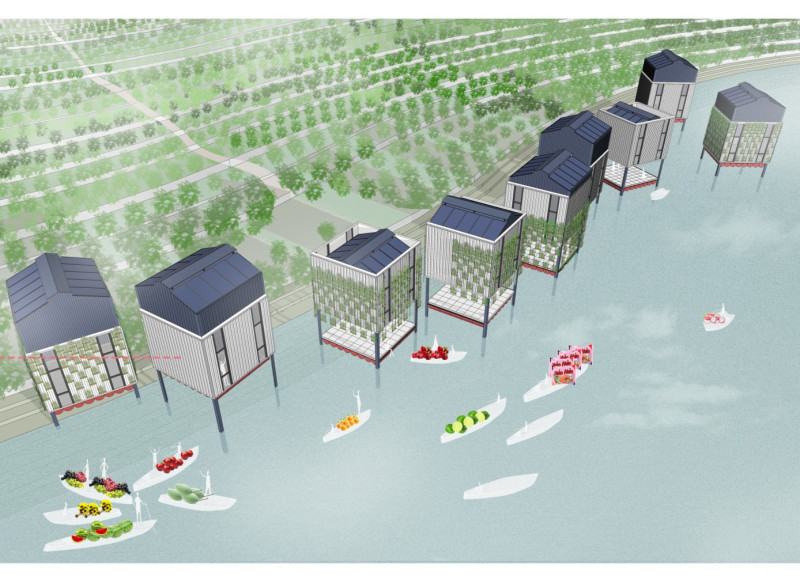5 key facts about this project
The Truckle House project is an architectural response designed for the unique living conditions of floating market communities in Long Xuyen, An Giang province, Vietnam. The architecture addresses the challenges posed by seasonal water level changes while prioritizing environmental sustainability and community interaction. This modular housing solution comprises elevated units that adapt to fluctuating conditions, integrating both residential and workspace functions within a compact footprint.
Sustainable and adaptive architecture often faces challenges in implementation. The Truckle House stands out by utilizing a series of innovative design approaches, such as the incorporation of mobile furniture systems, communal spaces, and an emphasis on flexibility. The project actively engages with its local context through material selection and innovative construction techniques.
Design and Adaptability
A significant feature of the Truckle House is the incorporation of a flexible layout that allows for the reconfiguration of space according to the users' needs. The modular units can easily adjust to accommodate changes in family size or function. The truckle system, a rail-based method for moving furniture and dividing spaces, promotes efficient use of limited areas.
The materials selected for the project reinforce its commitment to sustainability. The structure employs a steel frame for durability and stability above water, while recycled plastic tiles and furniture reduce waste and enhance energy efficiency. Additionally, the design integrates solar panels to provide renewable energy, demonstrating the project's commitment to environmentally responsible practices.
Community-Centric Approach
The Truckle House emphasizes community by fostering social interaction. Shared spaces are designed to encourage collaboration and connectivity among residents, reflecting the cultural practices associated with floating market life. The hanging facade system serves both functional and aesthetic purposes, allowing for natural light regulation while providing opportunities for vertical gardening.
By integrating water collection units and waste management systems, the project addresses the challenges of living in a floating environment. This design approach not only enhances the livability of the space but also encourages sustainable practices among residents.
To explore the architectural plans, architectural sections, and detailed architectural designs of the Truckle House further, interested readers are encouraged to delve into the project presentation. Insights into the architectural ideas underpinning this innovative project can enhance understanding of how design can effectively respond to environmental challenges and community needs.























































